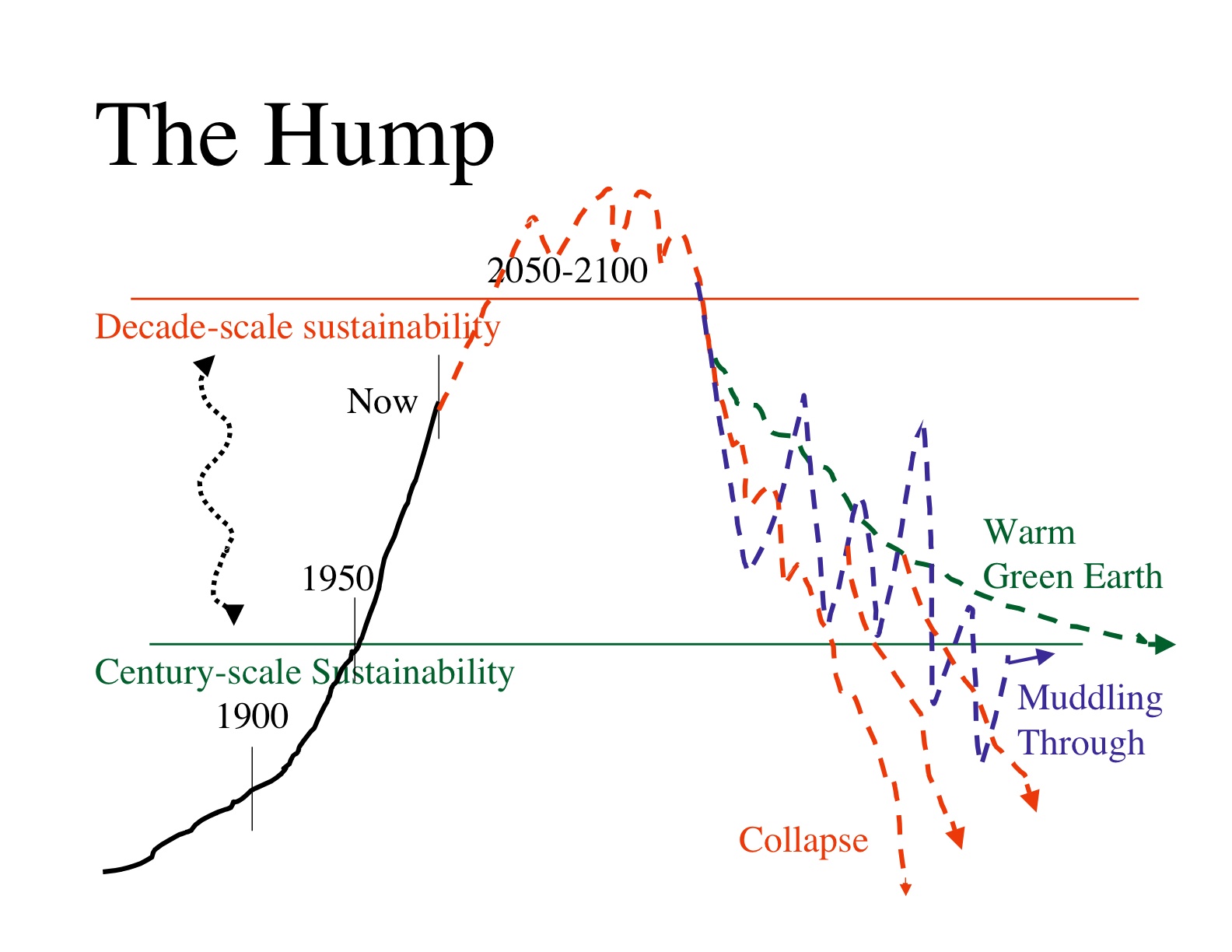ENVIR 300
ENVIRONMENTAL STUDIES: SYNTHESIS AND APPLICATION
|
Home Page Requirements Paper Assignments Quantitative Exercises Group Projects Course Schedule Resource Archive Email the Class 
|
TUESDAY, APRIL 22 SUSTAINABILITY We will begin today with a discussion of the carbon budget exercise, and then proceed to the topic of the day: Composing a general examination question for a graduate student in Environmental Anthropology, I once wrote: " 'Sustainability' is one of those words that is very much like "God" in three ways: a. It means everything, or anything, and thus means nothing. b. If it didn't exist, someone would have to invent it; in fact, it may not exist, (see a, above) but it has been invented, and we have to work with it. c. People worship it. Thus we begin our discussion of the most vexing term in all of environmental studies. To begin to get a hold on how slippery this concept is (since it's slippery, you can't get a hold on the concept itself, can you?), read the first three chapters of the so-called Brundtland Report, Our Common Future, which got the whole ball rolling. Think of some of the following questions, which will form the basis of our class discussions:
|
